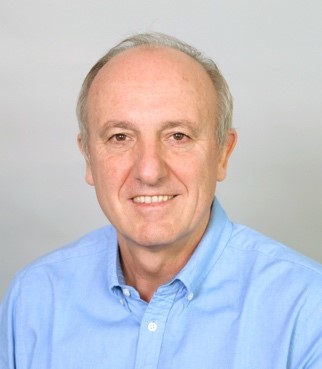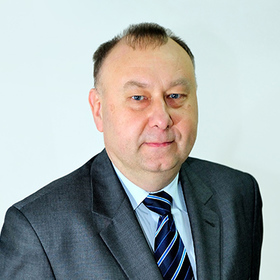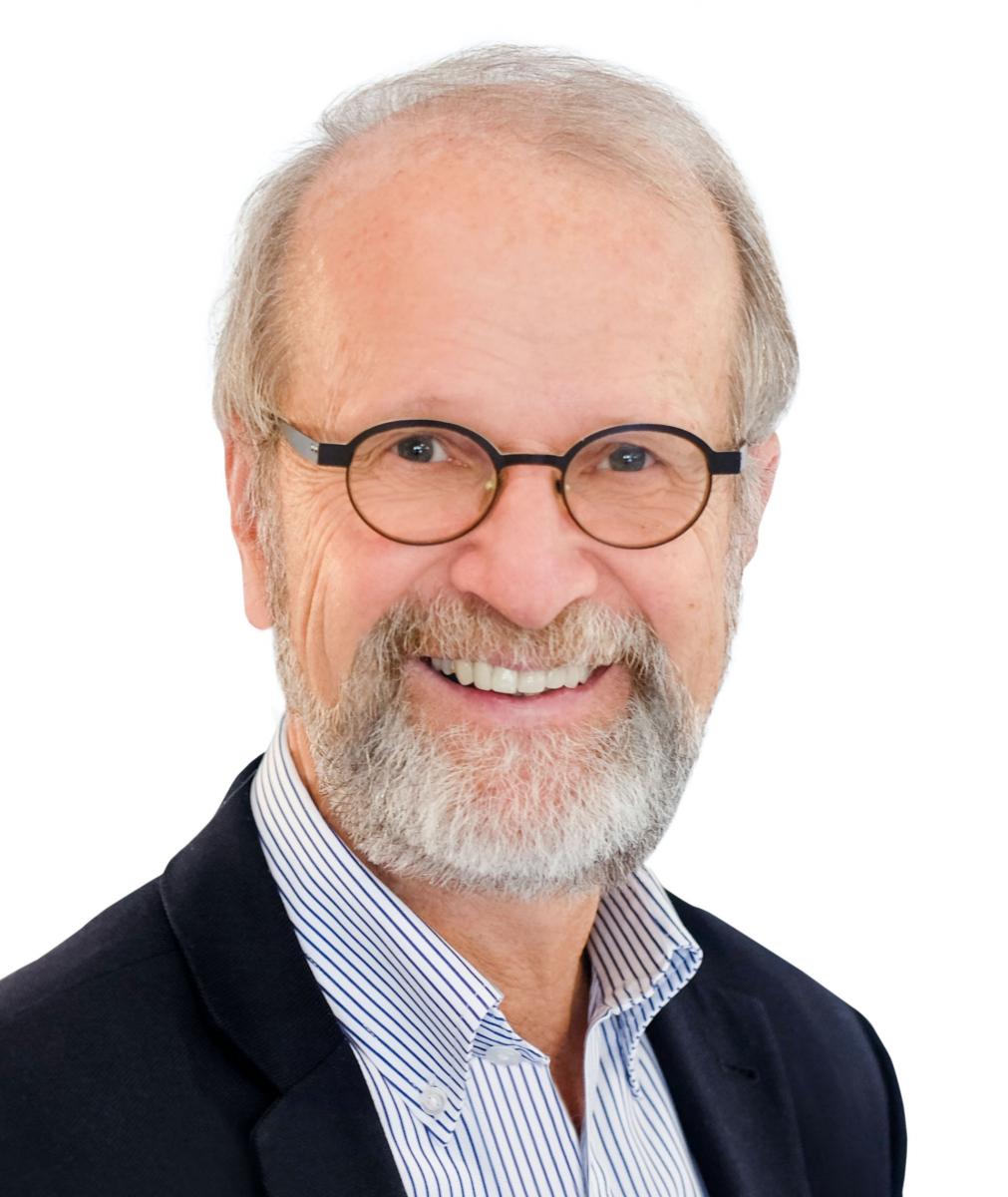Plenary session

The plenary session is scheduled for Wednesday morning, 18th September (Main Hall) and will consist of a series of outstanding talks.
Three speakers have already confirmed their participation:
- Prof. Daniel Loss, University of Basel, Switzerland - 2024 Czochralski Award Recipient
- Prof. Władysław Wieczorek, Warsaw University of Technology, Warsaw, Poland
- Dr. Erich Wimmer, Materials Design Inc., San Diego, USA
It's hard to imagine a richer offering of speakers. And that's the point of the plenary session: provide a shared experience for all conference attendees.
Schedule of plenary session:
09:15 - Introduction - Conference Organizers
09:25 - Welcome address by the Rector of the Warsaw University of Technology
09:30 - Welcome Address by E-MRS President, A.J. Kenyon
09:35 - Laudation and Presentation of the Jan Czochralski Award to Prof. Daniel Loss
09:50 - Czochralski Award laureate - Prof. Daniel Loss, University of Basel, Switzerland
|
|
||
 |
Spin Qubits in Semiconductors for Scalable Quantum Computers Daniel Loss Department of Physics, University of Basel |
|
|
Semiconductor spin qubits offer a unique opportunity for scalable quantum computation by leveraging classical transistor technology [1]. This has triggered a worldwide effort to develop spin qubits, in particular, in Si and Ge based quantum dots, both for electrons and for holes [2-5]. Due to strong spin orbit interaction, hole spin qubits benefit from ultrafast all-electrical qubit control and sweet spots to counteract charge and nuclear spin noise . In this talk I will present an overview of the state-of-the art in the field and focus, in particular, on recent developments on hole spin physics in Ge and Si nanowires, Si FinFETs, and Ge heterostructures [6-15], as well as strategies for maximizing valley splitting crucial for scalability of electron spin qubits in Si [16]. References: [1] D. Loss and D.P. DiVincenzo, Phys. Rev. A 57 120 (1998); Milestone paper of Phys. Rev. A (1970-2020) [2] C. Kloeffel and D. Loss, Annu. Rev. Condens. Matter Phys. 4, 51 (2013) [3] A. Chatterjee, et al., Nat. Rev. Phys. 3, 157 (2021) [4] P. Stano and D. Loss, Nat. Rev. Phys. (2022) [5] G. Burkard, et al., Rev. Mod. Phys. 95 (2023) [6] S. Bosco, B. Hetényi, and D. Loss, PRX Quantum 2, 010348 (2021) [7] L. C. Camenzind, et al., Nat. Electr. (2022) [8] S. Bosco and D. Loss, Phys. Rev. Lett. 127, 190501 (2021) [9] G. Scappucci, et al., Nat Rev Mater (2020) [10] S. Bosco, P. Scarlino, J. Klinovaja, and D. Loss, Phys. Rev. Lett. 129, 066801 (2022) [11] O. Malkoc, P. Stano, and D. Loss, Phys. Rev. Lett. 129, 247701 (2022) [12] B. Hetényi, S. Bosco, and D. Loss, Phys. Rev. Lett. 129, 116805 (2022) [13] S. Bosco, et al., Phys. Rev. Lett. 131, 197001 (2023) [14] S. Geyer, et al., Nature Physics (2024) [15] S. Bosco, J. Zou, and D. Loss, PRX Quantum, June 2024 (arXiv:2311.15970) [16] C. Adelsberger, S. Bosco, J. Klinovaja, and D. Loss, Phys. Rev. Lett. 2024 (accepted); arXiv:2308.13448
Biography: Daniel Loss is Professor of Theoretical Physics at the University of Basel, Switzerland. He is a pioneer and world leader of spin qubits and quantum computing. He received Diploma (1983) and Ph.D. (1985) in theoretical physics at the University of Zürich. 1989-1991 he worked as a postdoc with Nobel Laureate A. J. Leggett in Urbana, and 1991-1993 at the IBM T.J. Watson Research Center, NY. In 1993 he joined the faculty of SFU in Vancouver, and then returned to Switzerland in 1996 to become Full Professor of Theoretical Physics at the University of Basel where he founded and leads the Basel Center for Quantum Computing and Quantum Coherence (QC2) in 2005. Research interests include spin physics, spin qubits, quantum dots, semiconductors, quantum coherence, topological effects in semiconducting and magnetic nanostructures, and quantum computing. His publication record has over 63’000 citations with h-index 116. In 2000 he became APS Fellow, 2013 Member of the European Academy of Sciences, 2014 Member of the German National Academy of Sciences Leopoldina, and 2021 External Scientific Member of the Max Planck Society. 2005 he received the Humboldt Research Prize, 2010 the Marcel Benoist Prize (highest award by the Swiss government), 2014 the Blaise Pascal Medal in Physics from the European Academy of Sciences, and 2017 the King Faisal International Prize in Science. He is co-director of the Swiss national center on spin-based quantum computing in semiconductors, a field he pioneered in a series of publications starting in 1998 with his seminal work on spin qubits in quantum dots (with D. DiVincenzo). Their visionary paper led to an entirely new field and is one of the highest cited research papers in quantum computing. |
||
10:35 - Prof. Władysław Wieczorek, Warsaw University of Technology, Warsaw, Poland
|
|
||
 |
Electrolytes. Forgotten part of the battery. Desing and formulation of new systems Władysław Wieczorek Faculty of Chemistry, Warsaw University of Technology |
|
|
Conversion of renewable energy and its storage is currently a vital issue for the society as a sustainable global world depends on renewable energy sources, instead of fossil fuels. Despite development of lithium-ion battery technology still there is a need to search for new battery components (electrodes and electrolytes) assuring higher battery capacity, better safety and wider electrochemical stability range together with extended lifetime of the device. In the view of shortages of raw materials vital for battery construction the urgent matters is the design of new electrodes and electrolytes based on easily accessible materials of low cost and ease manufacturing procedures. The aim of this lecture is to present current research related to design and development of novel electrolytes for application in energy storage and conversion system. Particular attention will be paid to new technologies which can be used in novel lithium ion and post lithium ion batteries. The discussion will be illustrated by the achievements of the Faculty of Chemistry of the WUT with respect to the defined problems and the solution. On going research carried out in co-operation with academia and industrial partners will also be presented. Biography: Professor Wladysław Wieczorek is world known specialist in the areas of energy storage materials chemistry and lithium-ion batteries engineering particularly in the field of design and development of new electrolytes and their components for lithium–ion batteries and other energy storage systems. His studies have been described in over 160 papers in leading international journals (with>6500 independent citations), 22 patents with 12 international patents. The initial pioneering studies of Professor Wieczorek focused on composite polymeric electrolytes with the emphasize on the development of the theory of ionic transport in polymer-ceramic composite materials which is still used by researchers to design new composite systems. Subsequently, his team ventured into organic and inorganic anionic receptors to increase both conductivity and lithium cation transference number in composite polymeric electrolytes. The use of composite electrolytes in lithium batteries offers considerable resistance reduction of the electrode-electrolyte interface and therefore improves battery’s safety and lifetime. Motivated by these successes, studies on a new class of proton solid conductors based on nonaqueous proton conducting gel polymeric electrolytes for application in electrochromic devices were undertaken. The concept of nonaqueous proton conducting gel polymeric electrolytes is currently used in super capacitors working below ambient temperature. Recently the group headed by Professor Wieczorek has designed and developed novel family of Huckel-type salts which were licensed and in 2018 commercialized by the French chemical company Arkema (the products are sold under trade name Foranex). These conducting salts are based on anions that weaken coordination interactions between anion and cation in the structure, thus resulting in an increased ionic conductivity and cation transference number values, lower tendency towards formation of associates, and high tolerance to moisture. These conducting salts containing novel, proprietary anions are also functional as SEI modifiers and moisture absorbent/inside desiccants, present in electrolyte as a single additive or in a mixture with other environmentally friendly additives based on organosulphur compounds also designed at WUT. The described research were the basis for the foundation of a master-level European learning program known as MESC (Materials for Energy Conversion and Storage). As an extension of existing Master Program, in 2020 a new doctorate program Destiny was founded and supported by the European Commission under Marie Curie Sklodowska founds. |
||
11:20 - Dr. Erich Wimmer, Materials Design Inc., San Diego, USA
|
|
||
 |
Multiscale Materials Modeling in the Age of Machine Learning Erich Wimmer Materials Design Inc. |
|
|
The integration of high-throughput ab initio computations, machine learning, and advanced approaches for microstructure modeling opens unprecedented opportunities for multiscale modeling. These capabilities, combined with the relentless advances in computing power, enable a deep understanding and predictions of the processing, performance, and potential failure mechanisms of a wide range of materials including alloys, batteries, polymers, electronic, optical, and magnetic materials. Specific examples will include corrosion and hydrogen embrittlement of metals, performance and safety of Li-ion batteries, materials for fusion reactors, and polymers. An assessment of current capabilities of physics-based simulations and data-driven machine learning will show the exciting opportunities for future research and developments in multiscale materials modeling. Biography: Erich Wimmer is Chief Scientific Officer and Chairman of the Board of Materials Design, a company developing software and providing services for materials research. He received his doctoral degree in chemistry from the University of Technology in Vienna, Austria, in 1977. As research associate with Prof. A. J. Freeman at Northwestern University, USA, Dr. Wimmer was instrumental in the development of a highly accurate density functional method for solids and surfaces. As Director at the supercomputer company Cray Research in Minnesota, USA and then at Biosym Technologies in San Diego, he initiated and lead industrial consortia in computational materials science, before becoming a co-founder of the company Materials Design. Dr. Wimmer is the author and co-author of over 130 scientific publications and book contributions and has given numerous invited lectures worldwide. He is a member of the Materials Research Society, the American Physical Society, American Chemical Society, and American Nuclear Society. |
||
300 Yongbong-Dong, Puk-Gu, Gwangju South Korea 500-757
jinhyeok@chonnam.ac.krFaculty of Materials Science & Engineering, Poland
malgorzata.lewandowska@pw.edu.pl409 Atomistilor, Magurele, Ilfov, Romania
valentin.craciun@inflpr.ro